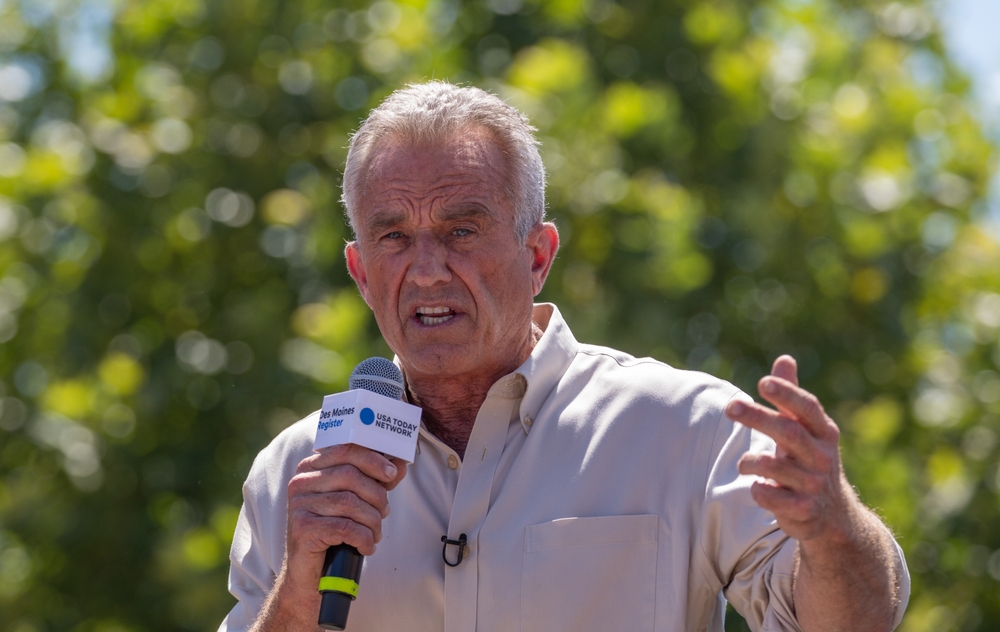The nomination of Robert F. Kennedy Jr. as Secretary of Health and Human Services raises concerns about the potential impact on public health policy. As hearings on his candidacy take place, it is important for senators to consider how his views and public statements have influenced physicians, children, and the broader health care system.
Kennedy has been a prominent figure in the discussion around vaccines, often promoting claims that contradict established medical research. His advocacy has contributed to growing vaccine hesitancy, a challenge that health care professionals have been working to address for decades.
As a pediatrician, I have witnessed firsthand the influence of vaccine skepticism on parents’ decision-making. Newborns, especially premature infants in neonatal intensive care, are highly vulnerable to infections. Yet, many parents express concerns about vaccinations, sometimes citing Kennedy’s statements, including claims reported by the Associated Press linking vaccines to autism—an association that has been widely discredited by scientific research.
Discussing the importance of vaccination with hesitant parents can be challenging, as some may view health professionals with skepticism due to widespread misinformation.
His influence cannot be underestimated. In a 2023 study analyzing over 300 million “tweets” related to COVID-19 vaccines, Kennedy was the most popular “low-credibility” source. His work accounted for more than one-tenth of all retweets of COVID-19 vaccine misinformation in the study. On the platform, he was more popular than authoritative sources such as the World Health Organization and the Centers for Disease Control and Prevention, an organization whose guidance he has urged people to resist and an agency he would directly oversee if confirmed as secretary of health and human services.
In part due to Kennedy’s claim that “there is no vaccine that is safe and effective,” childhood immunization rates have been steadily decreasing. This year, rates of immunization against whooping cough dropped to 92.3 percent among kindergartners and to 92.7 percent against measles—low enough to fuel 16 outbreaks of measles last year.
Pediatricians remember well the 2019 national measles epidemic, which included more than 1,250 cases across 31 states. With over 450 cases in New York, legislators removed nonmedical vaccine exemptions for school attendance, inciting the wrath of Kennedy and his anti-vaxxer followers. Kennedy traveled to New York to fight against the proposal and, in 2015, likened similar public health mandates on immunization in California to the Holocaust. As a pediatrician supporting New York’s law, several of us were harassed by anti-vaxxers online and in person at our state capitol, and a colleague’s office was protested.
Over 17,000 physicians, including national medical groups such as Doctors for America and the American Public Health Association, oppose Kennedy’s nomination because doctors remain haunted by the early days of the COVID-19 pandemic, when much about the disease was unknown, personal protective equipment was unavailable, and patients crammed intensive care units—dying at rates many of us had never before experienced. During those early days of the pandemic, when steroids and hope were our only treatments, we longed for a vaccine that could effectively prevent the disease and stop the spread of the infection. That breakthrough came in record time, in December of 2020.
Kennedy called COVID-19 vaccines the “deadliest vaccine ever made,” causing COVID-19 vaccine rates to steadily decrease. It is estimated that roughly 230,000 preventable COVID-19 deaths in the United States occurred in unvaccinated individuals after the immunization was widely available.
All of this distracts us from the fact that vaccines are among medicine’s greatest public health achievements. The World Health Organization estimates immunization has saved over 150 million lives over the past 50 years. In the United States alone, vaccines prevent 24 million cases of childhood disease and, over 30 years, have saved $2.7 trillion. Immunizations are also the most thoroughly studied and well-tested medicines. They are safer than anything in your medicine cabinet and have made infections like rubella and polio diseases of a bygone era.
If you need direct evidence of the danger Kennedy can pose to our system of public health, look no farther than Samoa. In 2018, two children died after receiving the measles vaccine in the small island nation. Within two weeks, a nursing error was discovered—the powdered form of the vaccine was incorrectly mixed with a muscle relaxant instead of water. Kennedy continued warnings that vaccination was killing children in Samoa. He traveled to Samoa and effectively maintained the message that measles vaccination was lethal. By 2019, there were 5,700 measles cases among an island population of roughly 200,000.
Eighty-three people died.
America’s vaccination system has real issues. The public’s trust in immunization is weakened. Payment for vaccinations insufficiently covers costs, and the federal Vaccines for Children Program, which supports vaccination for 19 diseases and delivers 74 million doses of vaccine annually, needs updating. But whatever problems exist in our immunization delivery system, Kennedy is not interested in solving them—only in destroying our immunization system from the inside.
Shetal Shah is a neonatologist.


